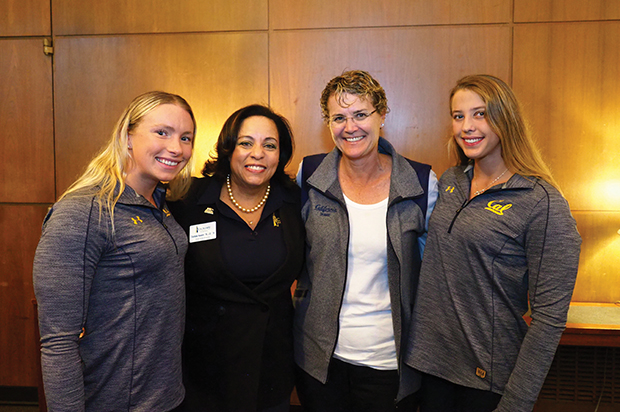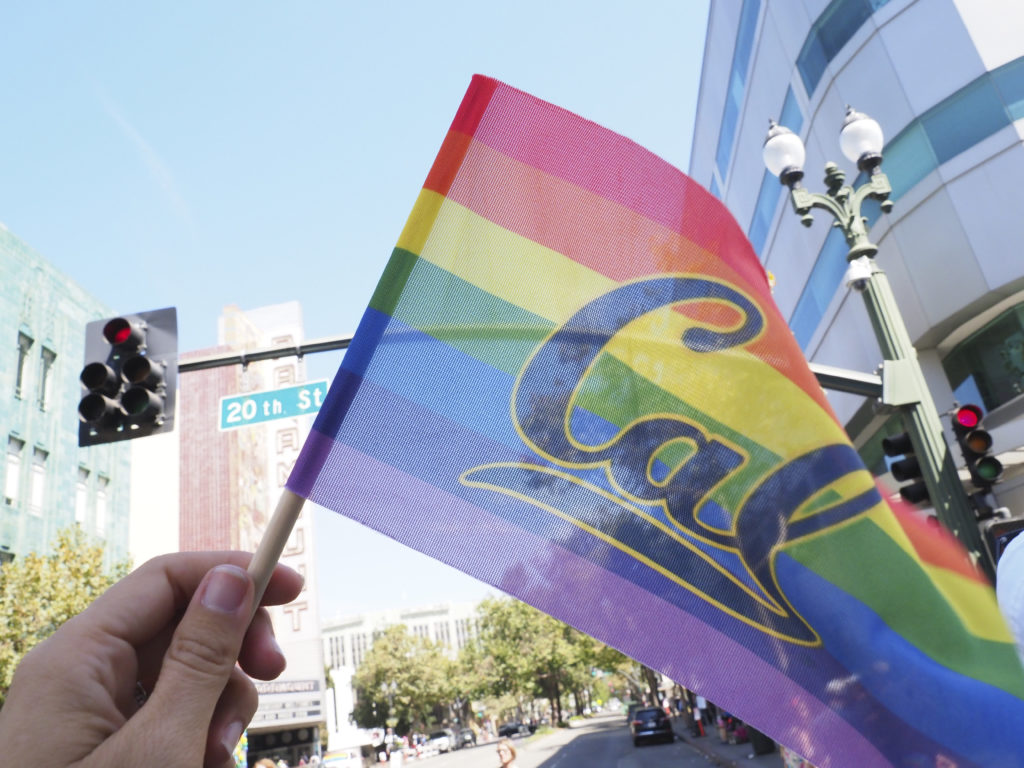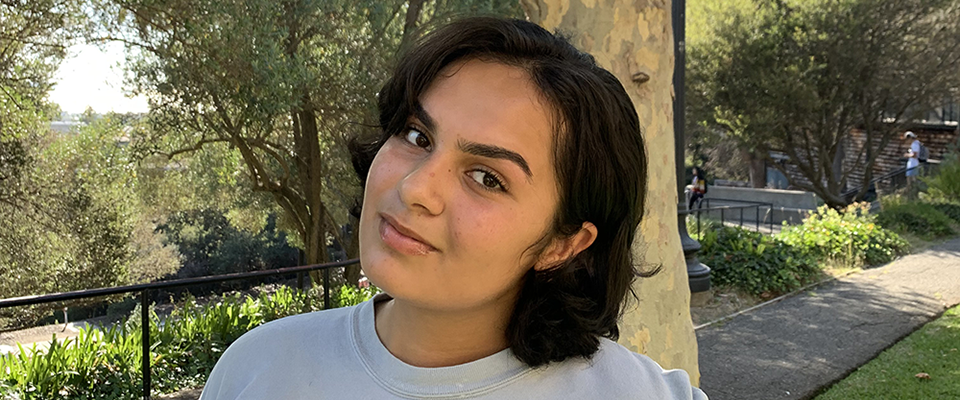Four years before Omotara Oloye ’21 was born, her parents immigrated from Nigeria to the United States. “They moved in hopes that they could give their children a better life,” Omotara says. “My parents knew that in order for their children to have a better life, for their children’s children to have a better life, going to college would level the playing field.”

Omotara grew up in San Leandro, California with three sisters. They were close enough to Berkeley that she could see the Campanile from the roof of her high school’s science building. The sight of the famous bell tower had always made Omotara feel that Berkeley was accessible to her.
In school, her science teacher, Mr. Gordon (a Cal grad himself), was one of her biggest advocates. “He helped me prepare for college and wrote my recommendation letters,” Omotara remembers. “He’s continued to support me ever since I stepped foot onto the Cal campus.”
Omotara is currently a third-year student at UC Berkeley, majoring in computer science and minoring in music, and a recipient of the Cal Alumni Association’s Achievement Award. She learned about The Achievement Award Program (TAAP) at one of the Educational Opportunity Program’s admit days and decided to apply after her parents emphasized to her the value of not going into debt for her education.
It was only after Omotara received the scholarship that she realized TAAP could provide more than just financial support. “The Alumni Scholars Program, which administers TAAP, helped me even before I stepped foot on campus,” she says. “They gave me opportunities to find work on campus and taught me thoughtfulness and mindfulness, so I could take care of myself and have the emotional capacity to do well in school.”
“It’s important to have a safe space on campus where you can talk to others who may know what you’re going through whether that be financial matters or feeling impostor
syndrome.”
Students in the TAAP scholar community helped connect her with resources in the computer science program, empowering her to major in computer science despite her limited background in the subject. Omotara also met her best friend through TAAP. “We take classes together, we decided to major in computer science together, and now we live together,” Omotara laughs.
TAAP has given Omotara the opportunity to meet like-minded people who understand the privileges, nuances, and challenges of attending a university like UC Berkeley—and she doesn’t take this lightly. In everything Omotara does on the Cal campus, she recognizes the role and influence she might have in inspiring and enabling others to access new opportunities.
“Computer science is a field that doesn’t have a lot of representation for people who look like me or come from instances like me,” she says, “so I know that the bare essence of my being able to study computer science at Berkeley could make a change in someone’s life down the road.”

On campus, beyond TAAP, Omotara is part of the Black Engineering and Science Student Association, and an ASUC senator who ran with the intention of representing the Black community. “Being an ASUC senator has given me direct access to talk to university administration on issues that I feel are important to me, like expanding grants and scholarships available to students, expanding the number of students who are served, and speaking up for students who aren’t able to speak up for themselves,” she explains.
While Omotara’s future doesn’t involve a formal role in politics, she knows she will remain involved building communities and championing causes for others.
“It’s important to have a safe space on campus where you can talk to others who may know what you’re going through, whether that be financial matters or feeling impostor syndrome,” she says. “Just being able to sit in a space where you know no one will look at you differently, where you can just be and express yourself, has been a great backbone for me and enabled my success at Cal.”




















